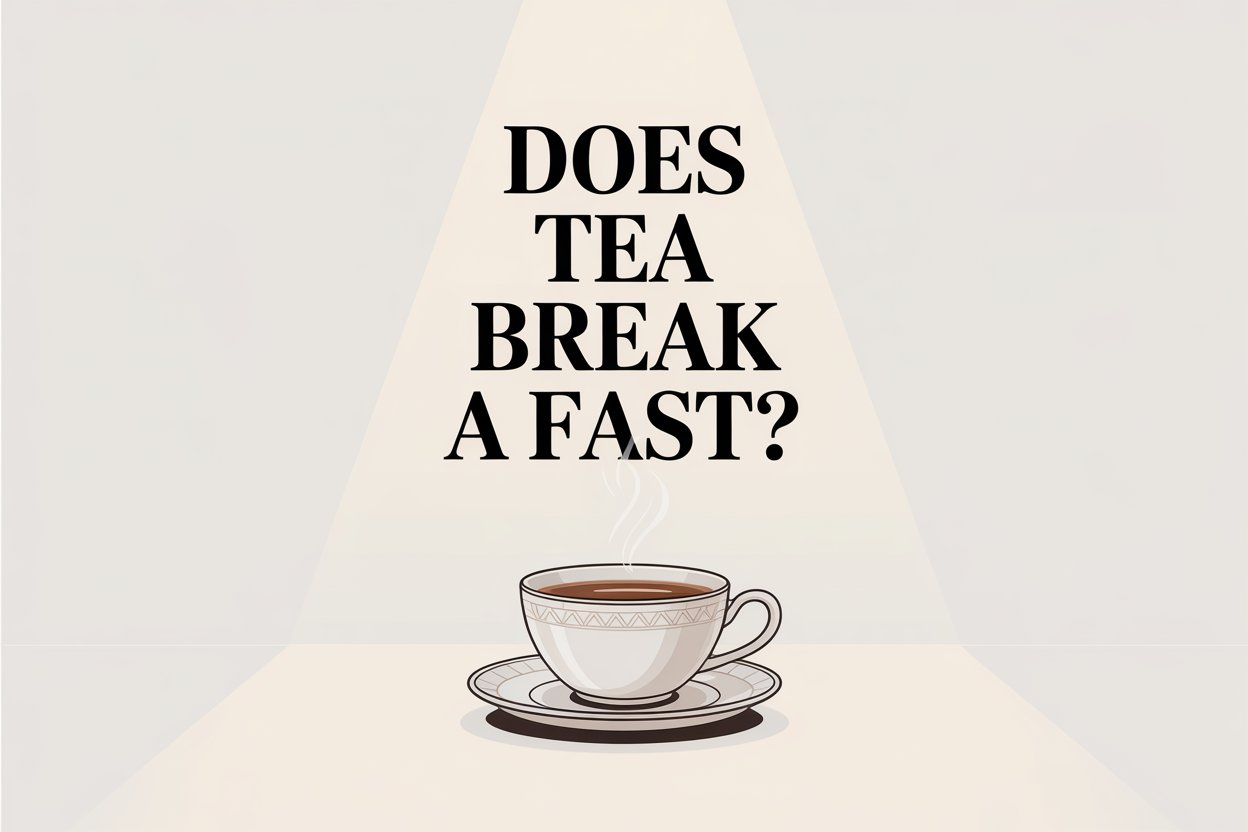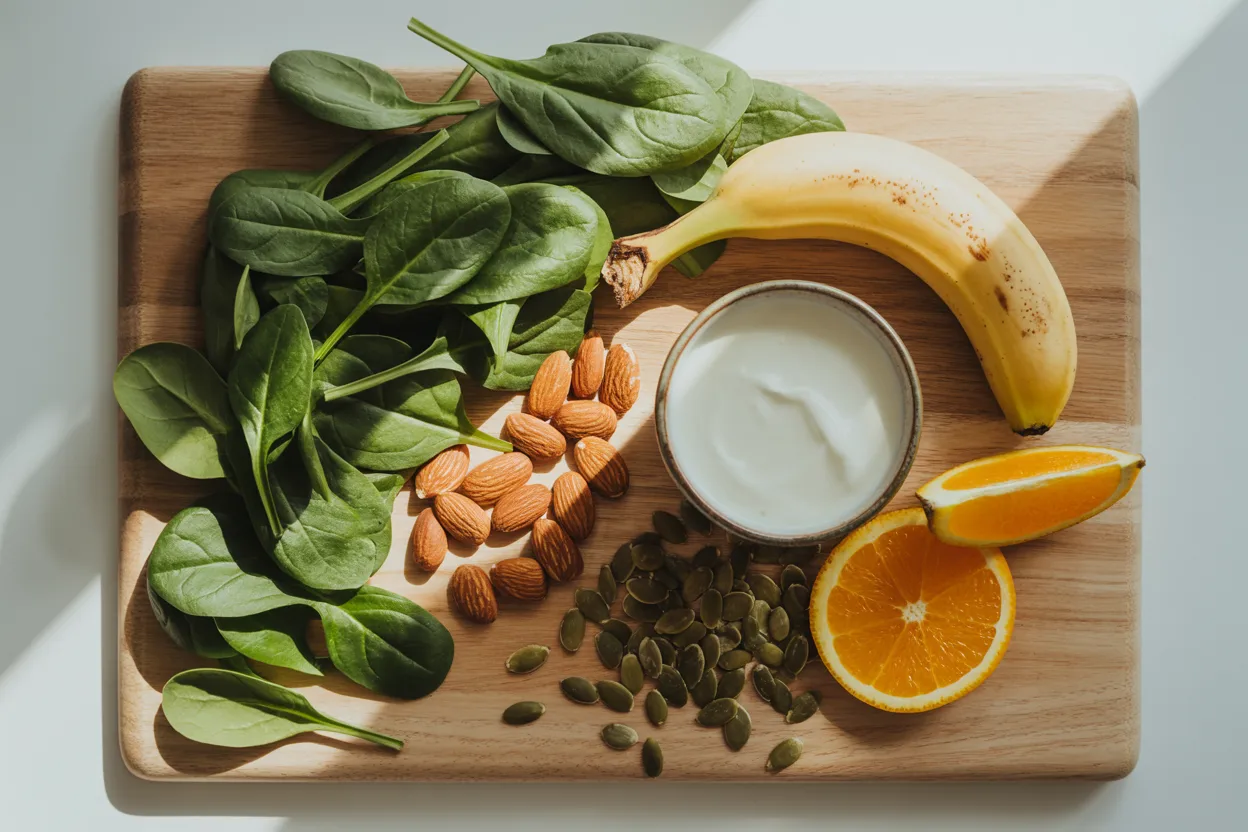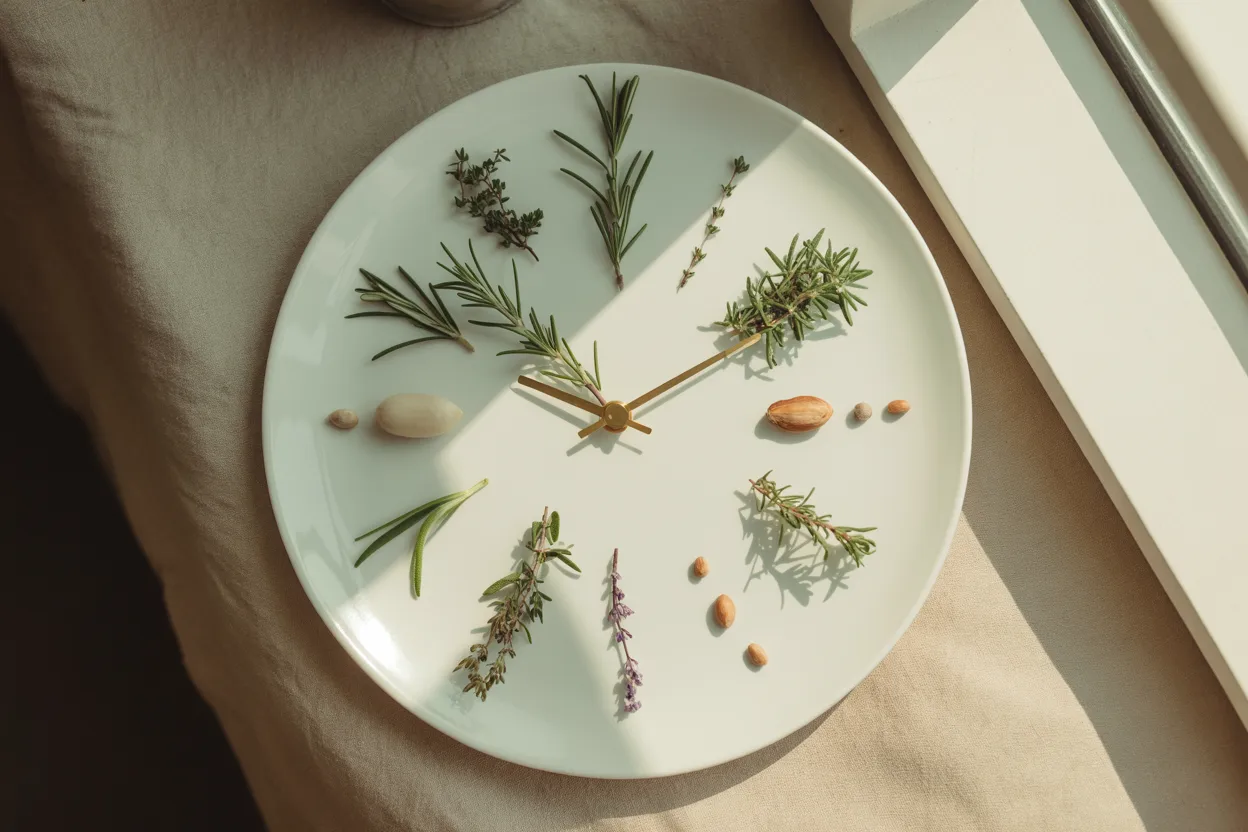It’s early morning, twelve hours into your intermittent fast. Coffee feels too harsh, water feels too plain, so you steep a cup of tea. The warmth settles you, the earthy aroma feels grounding, almost ceremonial. But does tea break your fast or help you?
Tea is one of the most common companions during fasting windows, but its role isn’t always straightforward. Unlike soda or gum, tea doesn’t bring much in the way of calories. The question is less about energy and more about signals. Plant compounds, bitter tastes, and even additives like milk or honey all influence whether tea supports your fast—or shifts you out of it.
Beyond the Calorie Count
Most teas are virtually calorie-free. A plain cup of green or black tea contains around 2–4 calories, which is nutritionally insignificant. But fasting isn’t just calorie math. It’s about the messages your body gets from what you consume.
Does something trigger insulin release? Does it wake up digestive hormones? Does it interfere with autophagy, the cellular cleanup process?
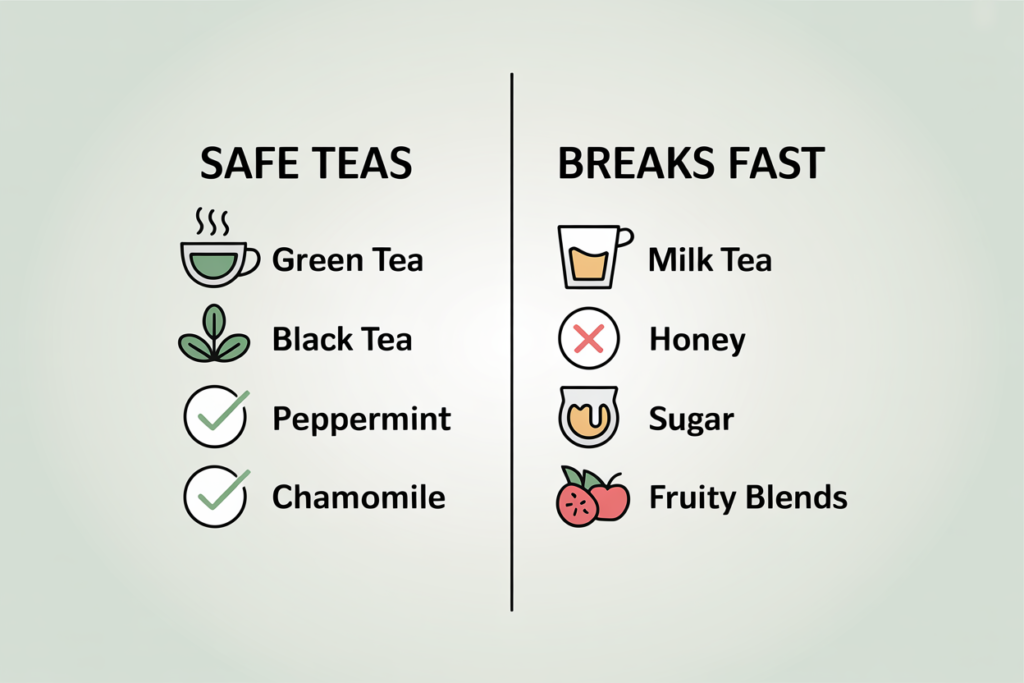
When asking does tea break a fast, the real answer depends on why you’re fasting in the first place. Are you after weight control? Improved insulin sensitivity? Autophagy? Or just appetite management and habit building? The type of tea you drink, and what you add to it, makes a difference.
What’s in Tea? (Calories, Compounds, Taste)
Let’s start simple.
- Green, black, oolong, and white teas: All brewed from Camellia sinensis. A cup carries almost no calories, but it’s rich in polyphenols like catechins (EGCG), caffeine, and the amino acid L-theanine.
- Herbal teas: Technically not “tea,” but infusions. Some are calorie-free (peppermint, chamomile), while others contain dried fruit, licorice root, or natural flavorings that can add sugars.
- Taste cues: Bitter tastes in tea can stimulate digestion, though not as strongly as sweet flavors, which are more likely to trigger a cephalic phase insulin response (a small anticipatory insulin pulse).
So does tea break a fast? For most plain teas, the calories are negligible. But blends with fruit pieces or added flavorings may not fit a clean fasting window.
Tea, Insulin, and Blood Sugar
Insulin response is one of the biggest fasting concerns. Good news: plain tea generally doesn’t spike insulin. In fact, it may help.
- A clinical review found that green tea catechins can improve insulin sensitivity and help with glucose metabolism.
- Black tea has its own perks. According to research, black tea polyphenols reduced the post-meal blood sugar rise when consumed with carbohydrates.
- Caffeine influences glucose handling, but in a fasted state without carbs, its impact on blood sugar is minimal.
So, in terms of insulin sensitivity, tea fasting doesn’t derail progress. If anything, it can support your goals.
Tea, Autophagy, and Cellular Pathways
One of the deeper draws of intermittent fasting is autophagy: the process by which cells clean out damaged parts and recycle them. Could tea interfere? Probably not.
On the contrary, research suggests tea may support this process. Polyphenols, particularly EGCG from green tea, are linked with enhanced autophagy and longevity pathways in animal and cell models. While human trials are still thin, early data hint that tea compounds may actually work with fasting, not against it, in stimulating cellular repair.
So if autophagy is your focus, intermittent fasting and tea may be a winning combination.
Gut, Satiety, and the Microbiome
Another lens: how tea interacts with your gut and appetite.
Tea polyphenols act as prebiotics, reshaping the gut microbiota in ways linked to metabolic health. That shift can change how your body processes food long-term.
Bitter tastes in tea also play a role. They may influence satiety hormones like GLP-1 and CCK, helping you feel fuller for longer. This may explain why many fasters report that tea curbs cravings and makes the fasting window easier.
Of course, not all teas are equal. Herbal blends with dried fruit or hidden sugars can deliver calories that do disrupt the fasting window. The difference between a peppermint tea bag and a spiced apple blend with dried fruit is bigger than most people realize.
Bottom line: Tea fasting can influence gut hormones and the microbiome, which may help some people feel less hungry during the fasting window.
Performance, Energy, and Focus
Fasting is easier when your mind and energy stay sharp. Tea has unique advantages here.
Caffeine paired with L-theanine creates a gentler, steadier energy boost than coffee. Instead of jitters and crashes, the effect is smoother focus. That’s why tea is often the drink of choice for long fasts or extended work sessions.
There’s also evidence that tea supports fat burning during fasted exercise. In one study, green tea extract increased fat oxidation during moderate-intensity exercise. This suggests tea may not only “not break” your fast—it might help your body make better use of it.
Hydration plays into performance, too. A warm mug of tea encourages fluid intake, and the antioxidants support vascular health and oxidative stress resilience along the way.
Practical Rules
So, can you drink tea while fasting? Yes, but with a few guidelines in mind.
If your fasting goals are weight loss or metabolic health, plain green or black tea is safe and may even enhance your results. If you’re fasting for strict autophagy, keep it as clean as possible: plain tea, no additives. Herbal teas are fine too, as long as they’re unsweetened and free of dried fruit.
Milk, honey, and sugar? Those do break a fast. Even a splash can deliver calories and insulin cues that reset your fasting window. Artificial sweeteners in “diet” teas fall into a gray area—while they may not add calories, they can send mixed signals to insulin pathways in some people.
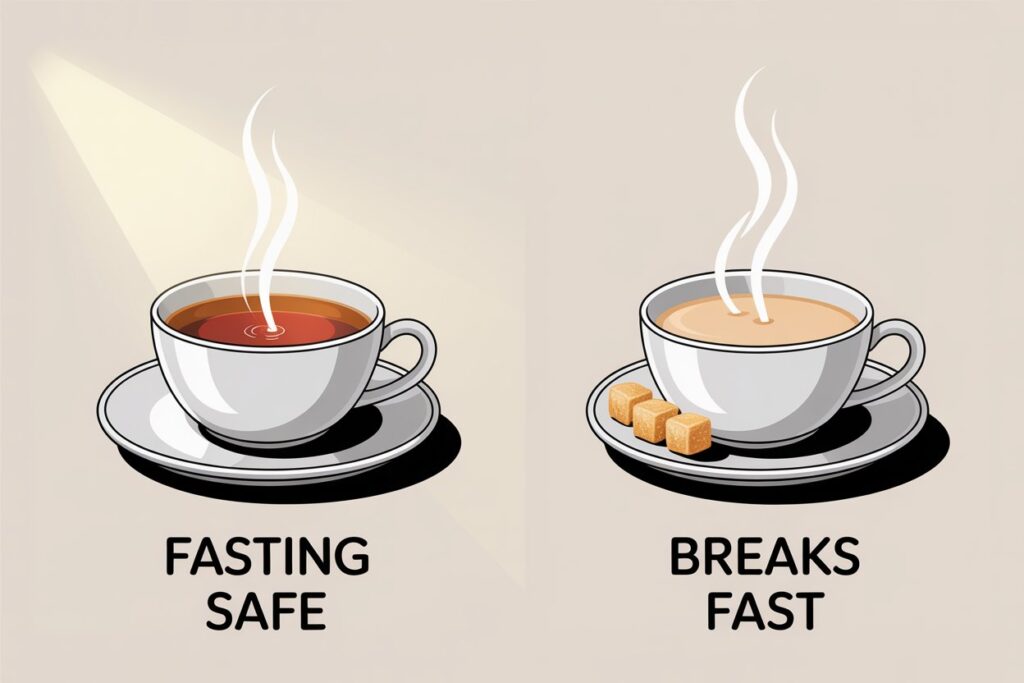
The best approach is to experiment. Run your own A/B test: one week with tea in your fasting window, one week without. Track hunger, cravings, focus, and energy. You’ll quickly see if tea helps or hinders your fast.
So, Does Tea Break a Fast?
Short answer: Plain tea—green, black, oolong, white, or many herbal infusions—does not break a fast in any meaningful way. The calories are negligible, insulin response is neutral or even favorable, and polyphenols may enhance autophagy and gut health.
But the answer shifts if you’re adding milk, sugar, honey, or calorie-rich herbal blends. Those will break a fast. For strict purists, even tea itself is off-limits. For most, though, tea is a supportive, safe partner in fasting.
Make Fasting Personal with Municorn
The cleanest answer will always come from your own data. Use the Fasting App by Municorn to log tea type, timing, hunger, cravings, and energy. Run a two-week test: one week drinking tea in your fasting window, one week without. Compare focus, performance, and fasting consistency. Once you identify a pattern, you’ll know whether tea is your fasting ally or just a pleasant distraction.

